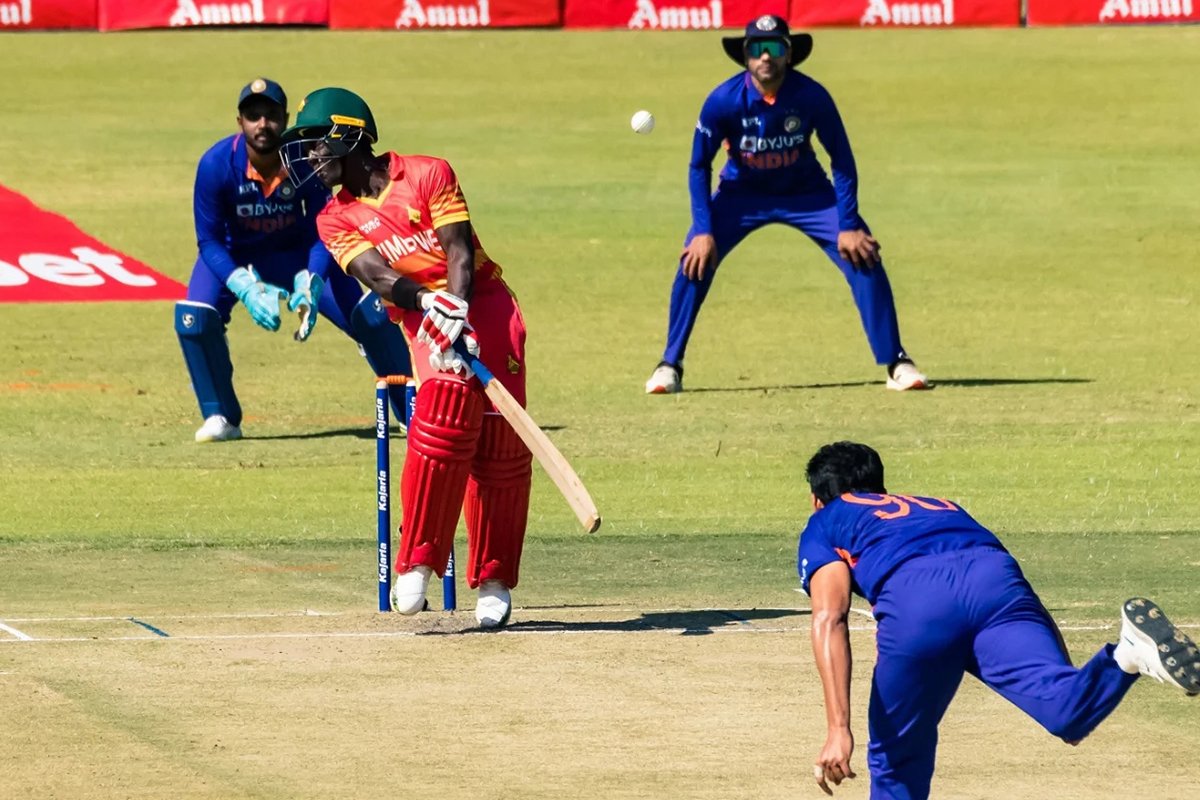After a gap of six years, India took to the field to play an ODI in Zimbabwe. The last time, ‘Men In Blue’ visited Zimbabwe for an ODI series was way back in 2016 when they clinched the three-match affair 3-0. Except for Zimbabwe, India has played ODI series in almost every country in the last six years. There are various reasons for this.
Firstly, India were scheduled to play a three-match ODI series in Zimbabwe in August 2020, but that was cancelled due to the COVID-19 threat. In fact, the Zimbabwe Cricket Board was looking forward to hosting that series to tide over their financial difficulties, but that didn’t happen. This is one of the prominent reasons why there is a six-year gap in the ODI series between the two countries in Zimbabwe.
Secondly, Zimbabwe have not hosted any major ICC tournament in all these years, featuring multiple teams, and that has prevented not only India but many countries from visiting Zimbabwe. Sometimes, teams don’t play bilateral series but they still visit other countries to participate in marquee tournaments.
READ MORE: Why Strong Teams Loath To Play Bilateral Series In Zimbabwe?
Another factor is Zimbabwe not organising many bilateral series. It is not just India, but so many other nations as well, who have not played too many ODIs against Zimbabwe in their backyard. Since 2015, only Afghanistan (14) and Pakistan (6) have featured in more ODIs in Zimbabwe than India. The ‘Men In Blue’ have locked horns with Zimbabwe in 6 ODIs and have won all of them.
It is important to note that during this period, the strong teams such as Australia, England and South Africa have not played a single ODI against Zimbabwe in Zimbabwe.
This underlines the fact that most of the big cricketing countries shy away from even visiting Zimbabwe. Compared to them, the Board of Control for Cricket (BCCI) has been pretty supportive and forthcoming in sending their team to Zimbabwe, at least for the limited-overs series.
READ MORE: India Take On Zimbabwe In ODI Series With Eye On World T20
While Zimbabwe had emerged as a supremely competitive team in the 1990s, their fortunes began to decline after 2003 owing to political upheavals in the country. The political instability resulted in financial turmoil, which had terrible repercussions on the cricketing ecosystem in Zimbabwe.
In July 2019, Zimbabwe was banned from international competitions for three months by the International Cricket Council (ICC) because of government interference in the running of the cricket board. The Zimbabwe government had fired the board amid allegations of corruption and financial mismanagement, which triggered the ban. During the suspension period, the Zimbabwe Cricket Board stopped receiving funding from the ICC.
In 2020, the board decided to slash the salaries of players due to a lack of funds. The cricketers in Zimbabwe were getting meagre salaries anyway and were grappling with financial distress. Even in the past, players were not paid for months and ultimately had to issue a threat to strike to get their money.
Because of such a tragically dismal scenario, many cricketers retired because playing cricket was no longer feasible to make ends meet. Barring a few wins, Zimbabwe’s cricket team haven’t done too well in the last 10 years, especially against formidable teams. That explains why most countries are loath to play bilateral series in Zimbabwe.









